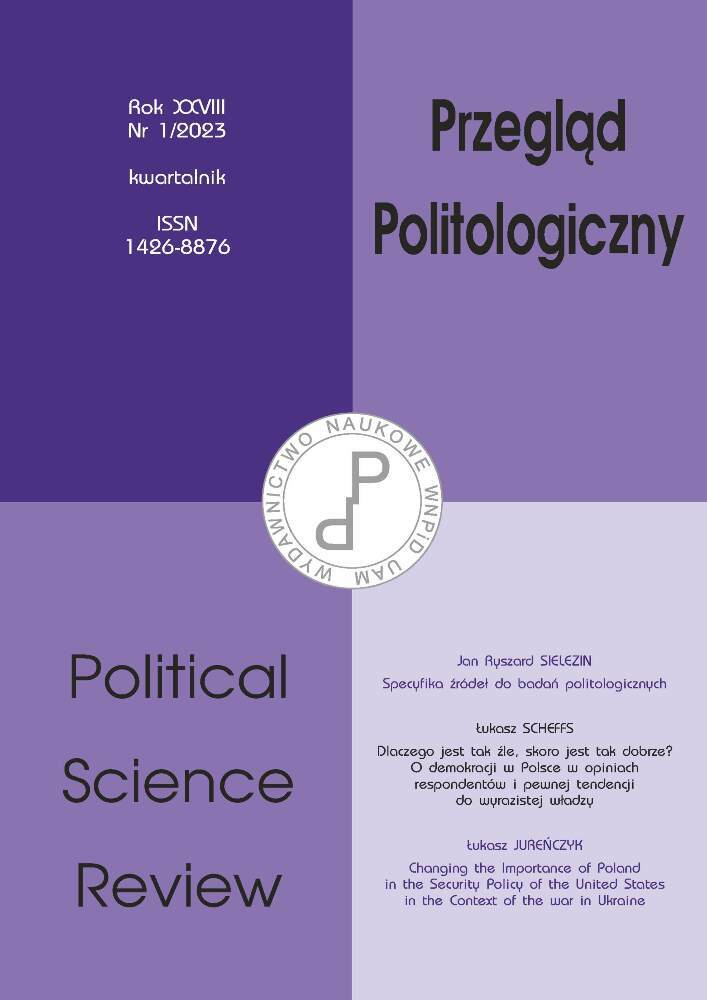Abstract
In hybrid political system of Georgia, in condition of COVID-19, the population obeyed control and strict regulations. Concepts such as the Iron Curtain, curfew, etc., have returned to the country’s political vocabulary. How can these symbols of a totalitarian (Soviet) past fit into the process of democratization? What is the reaction of society, other political actors? Why and how pandemic damaged democracy in Georgia? Does this threaten to revise the concept of a democratic political system, which will be especially difficult for post-totalitarian society?
This research paper examines case of Georgia: how political institutions, political elite, society, Media, the country’s legislative base was ready for new reality and what political consequences this crisis would have in the process of democratization and nation-building. Unfair political competition during the elections, the growth of populism, the partial abandonment of certain rights, the deepening of polarization, etc. – are these challenges related only to the pandemic or have they also threatened Georgian democracy in “normal” times?
References
Chedia B. (2020), Parliamentary Elections: Georgia at the Crossroads, “PONARS Eurasia Policy Memo”, no. 668, The Institute for European, Russian and Eurasian Studies (IERES) at the George Washington University’s Elliott School of International Affairs, Washington, DC, USA, https://www.ponarseurasia.org/october-2020-parliamentary-elections-georgia-at-the-crossroads/.
Cheibub J. A., Hong, Ji Y. J., Przeworski A. (2020), Rights and Deaths: Government Reactions to the Pandemic’. DOI: https://doi.org/10.31235/osf.io/fte84
Constitution of Georgia (1995).
Constitutional Law, No. 6500-RS (2020), On the Amendments to the Constitution of Georgia, https://matsne.gov.ge/ka/document/view/4904761?publication=0.
Decision of the Constitutional Court of Georgia, (2021), https://matsne.gov.ge/ka/document/view/5105272?publication=0.
Demytrie R. (2020), Coronavirus: How ‘three musketeers’ helped Georgia fight virus, https://www.bbc.com/news/world-europe-53269000.
Edgell A. B., Lachapelle J., Lührmann A., Maerz S. F. (2021), Pandemic backsliding: Violations of democratic standards during Covid-19, “Social Science and Medicine”, 285/5. DOI: https://doi.org/10.1016/j.socscimed.2021.114244
Election Administration of Georgia (2016), Report on the Parliamentary Elections of Georgia, https://cesko.ge/static/res/docs/AnnualReport2016-CeskoEng.pdf.
Election Administration of Georgia (2017), Elections of the Representative Body of Municipality – Sakrebulo and Mayor of Self-governingCity/Self-governing Community, https://cesko.ge/static/res/docs/ParliamentAnnual2018Eng.pdf.
Election Administration of Georgia (2019), Election of President of Georgia. Report. 2019, https://cesko.ge/static/res/docs/20190415171028AnnualReport-2019Eng.pdf.
Election Administration of Georgia (2021), Parliamentary Elections of Georgia. Report. 2021, https://cesko.ge/static/res/docs/AnnualParliament-2021Eng.pdf.
Election Administration of Georgia (2021), Elections of Representative Body of the Municipality – Sakrebulo and Mayor of Self-Governing City/Self-Governing Community. Report. 2021, https://cesko.ge/static/file/202203285524-202203255743-report-of-october-2-2021-municipal-elections.pdf.
Engler S., Brunner P., Loviat R., Abou-Chadi T., Leemann L., Glaser A., Kübler D. (2021), Democracy in times of the pandemic: explaining the variation of COVID-19 policies across European democracies, “West European Politics”, no. 44, p. 5–6. DOI: https://doi.org/10.1080/01402382.2021.1900669
Foa R. S., Romero-Vidal X., Klassen A. J., Concha J. F., Quednau M., Fenner L. S. (2020), The Great Reset Public Opinion, Populism, and the Pandemic. Report. Centre for the Future of Democracy (CFD), https://www.bennettinstitute.cam.ac.uk/wp-content/uploads/2020/12/The_Great_Reset.pdf.
Freedom House (2021), Countries and Territories, https://freedomhouse.org/countries/nations-transit/scores.
International Idea (2021a), The Global State of Democracy 2021. Building Resilience in a Pandemic Era, https://www.idea.int/gsod/sites/default/files/2021-11/the-global-state-of-democracy-2021_0.pdf.
International Idea (2021b), Global overview of COVID-19: Impact on elections, https://www.idea.int/news-media/multimedia-reports/global-overview-covid-19-impact-elections.
Law of Georgia on Public Health (2020).
Lührmann A., Edgell A. B., Grahn S., Lachapelle J., Maerz S. F. (2020), Does the Coronavirus Endanger Democracy in Europe?, https://carnegieeurope.eu/2020/06/23/does-coronavirus-endanger-democracy-in-europe-pub-82110.
National Agency of Public Registry of Ministry of Justice of Georgia (2021), Register of Political Parties.
NDI (2020), Public Attitudes in Georgia. Results of December 2020 telephone survey of The National Democratic Institute, https://www.ndi.org/sites/default/files/NDI%20Georgia_December%202020%20Poll_ENG_FINAL.pdf.
NDI (2022), Taking Georgians’s Pulse. Key Findings from December 2021 Telephone Survey of The National Democratic Institute, https://www.ndi.org/sites/default/files/NDI%20Georgia%20-%20December%202021%20poll_Eng_vf.pdf.
License
Copyright (c) 2023 Beka Chedia

This work is licensed under a Creative Commons Attribution-ShareAlike 4.0 International License.

